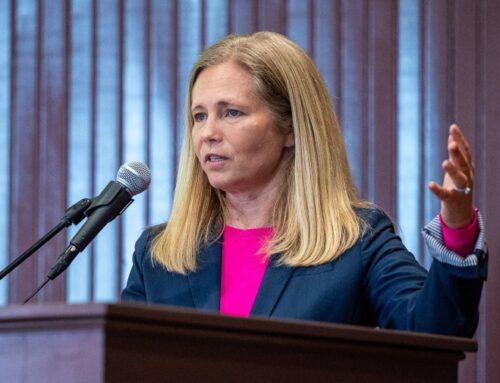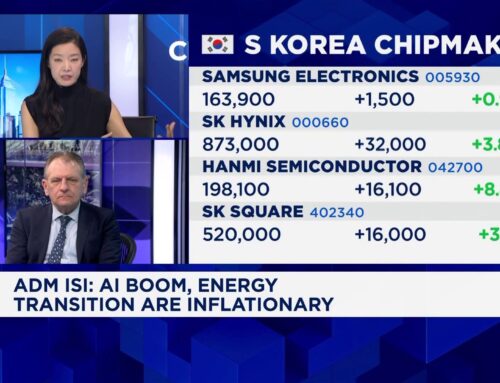Could Tariffs Improve Environmental Sustainability Outcomes?
April 8, 2025
Amidst the current escalation of a global trade war, ecologist Jonathan Foley humorously noted on the social media platform Blue Sky that perhaps President Trump is secretly a “de-growther” and tanking the economy to help the environment! Jokes aside, a reduction in overall consumerism may well be an inadvertent silver lining to the economic cloud, similar to what happened during the COVID pandemic. Conventional economics has championed economic growth as a necessary condition for innovation and continued human development. Environmentalists have lamented the “addiction to growth” which has led to rampant material consumption. The United Nations International Resource Panel in its latest Global Resources Outlook report has noted material consumption as a major contributor to the “triple planetary crisis” of pollution-health nexus, biodiversity loss and climate change. At the same time, the rationale for tariffs comes from a recognition of global economic inequality. Poorer countries were allowed by the global trade system to engage in tariffs precisely to level the playing field of economic development. Indeed, tariffs have also been specifically used for environmental policy motivation as well.
Green Growth or Degrowth?
The idea of “Green Growth” has emerged as a policy alternative to conventional laissez-faire economic growth that could reconcile concerns around inequality, economic development and environmental harm. There is also rising concern about the “commoditization” of ecosystem services in a market, which can lead to over-exploitation. Critics have argued that “green growth” could be achieved, but the benefits would not be distributed evenly for all. Some level of inequality in terms of aspirations for income level and differences in human contentment is inevitable, based on divergent personality types. However, the level of global developmental inequality is staggering and is itself not sustainable in the context of rising communal violence and social conflict.
Economic anthropologist Jason Hickel has emerged as a prominent voice to link inequality and broader notions of sustainability. He has, however, argued that green growth is chimerical in its overall long-term impact and degrowth is the only viable way to mitigate inequality and deal with concerns of ecological sustainability. His work is empirically driven with rigorous peer-reviewed publications. In 2022 he published an estimate with collaborators that wealthy countries were responsible for 74% of global excess resource use over the period 1970-2017 and thus “stopping the ecological crisis will require that rich countries pursue transformative post-growth and degrowth policies.” Some of the transformative ideas to decouple “growth dependencies” would include a reform of the way stock value determines net worth of companies and investment incentives and remuneration of executives.
Equality versus Equity
On the 50th anniversary of the publication of the famous primer on economic sustainability Limits to Growth, a 2022 editorial in the journal Nature noted that we must “call time” on the debate around growth. The underlying challenge the editorial was hinting at was how any reform can be accomplished through governance mechanisms to contain growth which also respects some measure of individual choice for consumption. The focus should perhaps be on tangible steps which need to be taken within these constraints of governance. In some cases, degrowth may well be possible to implement and in others, particularly in developing countries, it would be less plausible. Ultimately, ecological constraints need to be incorporated within economic decision-making for sustainability to be realized and this is done within the market through pricing mechanisms.
The motivation for tariffs from President Trump is to revitalize certain declining economic sectors of the economy with the ostensible goal of “being fair” in equalizing trade deficits. Yet, the fundamental maxim of “comparative advantage,” even in conventional economics, suggests that production of goods and services should gravitate towards locations which have economic and environmental advantage for production. There is thus a fundamental difference between “equality” of opportunity and “equity” in ultimate outcomes. Inequality between different sectors of economic output between nations can lead to greater equity in overall economic outcomes for all nations.
A similar misunderstanding over equity and equality has led to the Trump administration’s aversion to Diversity, Equity and Inclusion (DEI) policies. If impoverished communities get advantaged through some affirmative action (and hence inequality in entry criteria), this could in turn lead to overall higher potential for economic activity, reduced crime and greater overall well-being – and hence equity. What is plausible to note in this regard from an economic perspective is that income disadvantage should be the metric rather than race or gender per se (though there could indirectly be a correlation between economic indicators and diversity-related metrics).
Virtue of Trade Deficits?
It is by this same logic that a trade deficit with China has helped working class Americans to buy a host of consumer amenities and improve their quality of life, which they could not have done if the same goods were produced in the United States. Consider the rise of Walmart – a multinational that has transformed one of America’s poorest states – Arkansas, where the company is headquartered. At the height of US-China trade openness in 2004, nearly 11.5% of China’s entire exports to the United States went to Walmart. The rise of Walmart also led to cheaper disposable products and wanton consumerism that led to massive criticism from environmentalists. Trump’s “tariffs detox and reset,” is aimed at greater production in America. Yet this would inevitably lead to higher prices for consumer products as the cost of labor differential is abundantly clear between countries in East Asia and the United States. Perhaps this will lead to more measured consumption by Americans, which could in turn have better environmental outcomes too?
The tariffs war is an unpleasant disruption for the stock market, precisely because it has impacted the edifice of a consumer-driven growth economy. At the same time some tariffs could also impact the economic viability of green technologies. If tariffs are allowed to play out to the point where prices rise for consumer products and consumption declines accordingly, there could indeed be some positive environmental dividends. Yet, that is not the intention of the administration and in all likelihood, there will be a derailing of the tariffs if profits are pinched along the arc of consumer-driven enterprise. “Creative destruction” or “disruptive innovation” are aphorisms to lessen the pain for American consumers. The ultimate planetary outcome of such “shock and awe” will need to be followed closely with an eye towards ultimate indicators of both ecological and economic sustainability.
Search
RECENT PRESS RELEASES
Related Post



